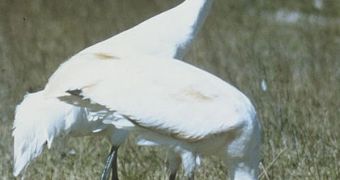Between 20 and 170 million migratory birds, from all over North America, set their nests in Canada's northern (or boreal) forests each year, as part of their breeding season. Some of them are already endangered, due to hunting or other factors, and the risk of them disappearing entirely is increased by numerous oil exploitations, in a region that, until a few years ago, was a safe heaven for them.
The Canadian state of Alberta is home to the second largest oil deposits in the world, smaller only than those in the Middle East, and petroleum companies are expanding in the region exponentially, opening increasing numbers of pits, which dot the land. But harvesting crude from sandy deposits, rather than extracting it ready for processing, is very difficult and, as a byproduct, the environment, especially lakes and the boreal forests, has to pay the price for these endeavors.
Already, North American environmental groups, including the Natural Resources Defense Council, the Boreal Songbirds Initiative and the Pembina Institute, expressed their concern about the state of affairs, and asked the Canadian government, Alberta state authorities and large oil corporations to engage in sustainable drilling, so as not to make a mess of everything around them.
Last year, more than 500 ducks died in the region, after they landed on a newly-formed lake, which was filled with toxic substances, all byproducts of the industry having to purify the sands before synthetic crude could be obtained. The incident captured the attention of the international opinion, and, since then, Canada has received numerous critics on the matter, which it chose to ignore, due to the royalties it collects from allowing the industry to go about its dirty business.
In the meantime, carbon is released into the atmosphere and enormous amounts of chemicals are spilled into surrounding waters daily, even though the companies say they are in compliance with all applicable norms. But Natural Resources Defense Council senior attorney, Susan Casey-Lefkowitz, says that "People need to take a hard look at whether this can be mitigated or if tar sands development is just incompatible with conservation of bird habitat." Pressures coming from the US could have an impact, as it is the largest market for Canadian oil.

 14 DAY TRIAL //
14 DAY TRIAL //